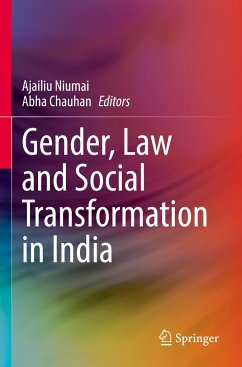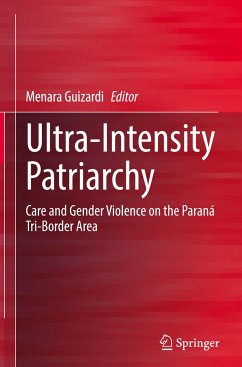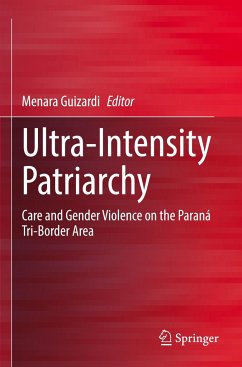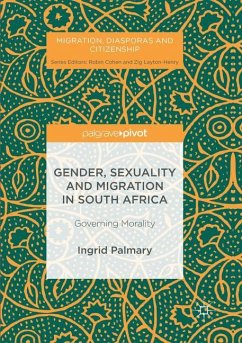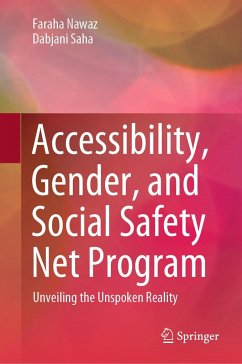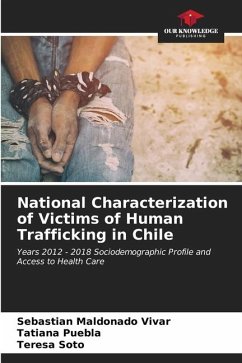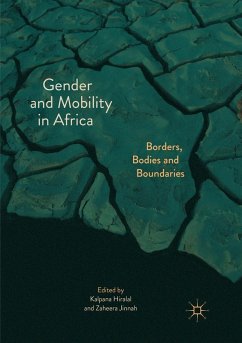
Gender, Law and Social Transformation in India

PAYBACK Punkte
49 °P sammeln!
This book provides deep insights into the wide-ranging issues linked to gender, law, and social transformation in India. It focuses on women-centered laws as well as the violence of unequal and discriminatory social order. It emphasizes violence and the neutrality of laws that sustain the status quo and perpetuate the stereotypical notions related to women's condition. Based on the first-hand experience of laws and their nuanced understanding, the essays highlight the rules associated with the private and the public domains. The chapters in the volume analyze various statutes and their enactme...
This book provides deep insights into the wide-ranging issues linked to gender, law, and social transformation in India. It focuses on women-centered laws as well as the violence of unequal and discriminatory social order. It emphasizes violence and the neutrality of laws that sustain the status quo and perpetuate the stereotypical notions related to women's condition. Based on the first-hand experience of laws and their nuanced understanding, the essays highlight the rules associated with the private and the public domains. The chapters in the volume analyze various statutes and their enactment related to domestic violence, dowry crimes, sexual abuse at home as well as sexual harassment at the workplace, child marriages, education, property rights, trafficking, prostitution, 'honor' killings, and armed conflict. The book is essential to the academics and researchers in the disciplines of social sciences, gender studies, law, and the government and policy-makers for making meaningful interventions.





